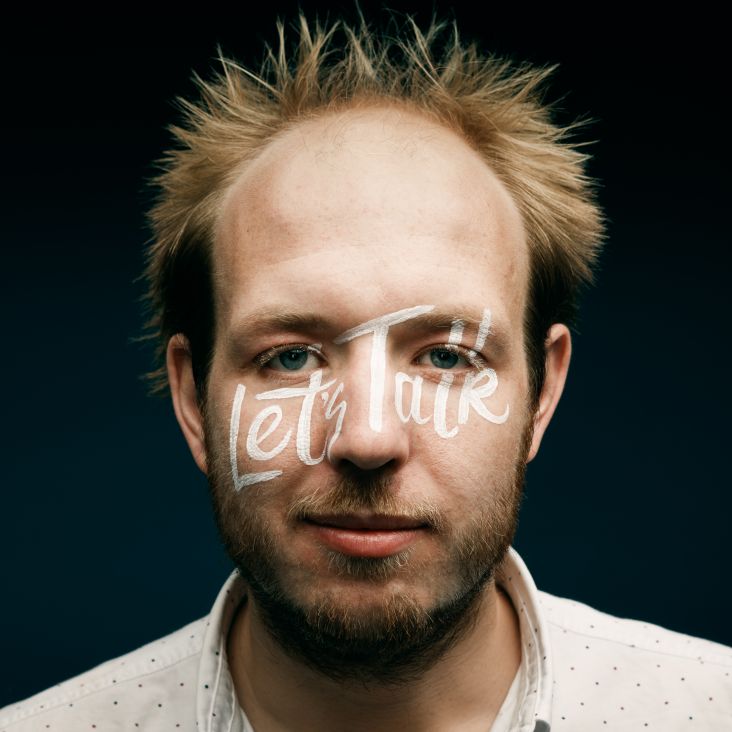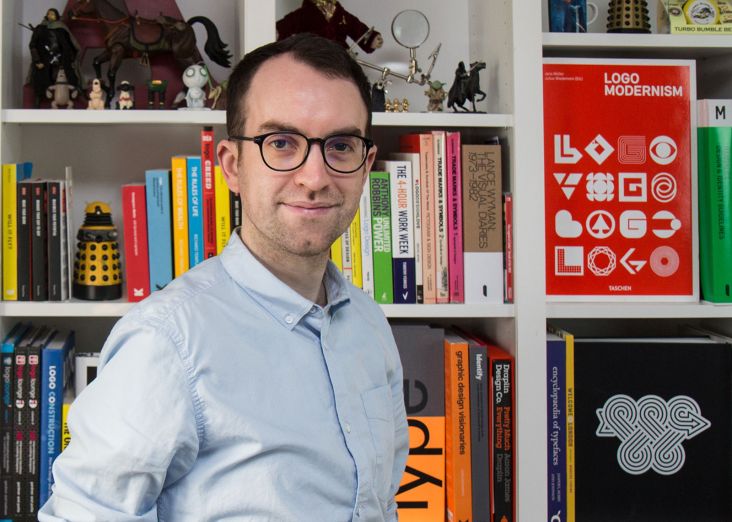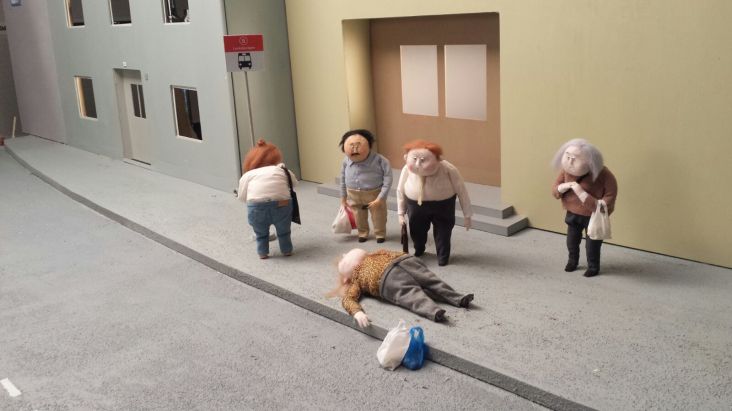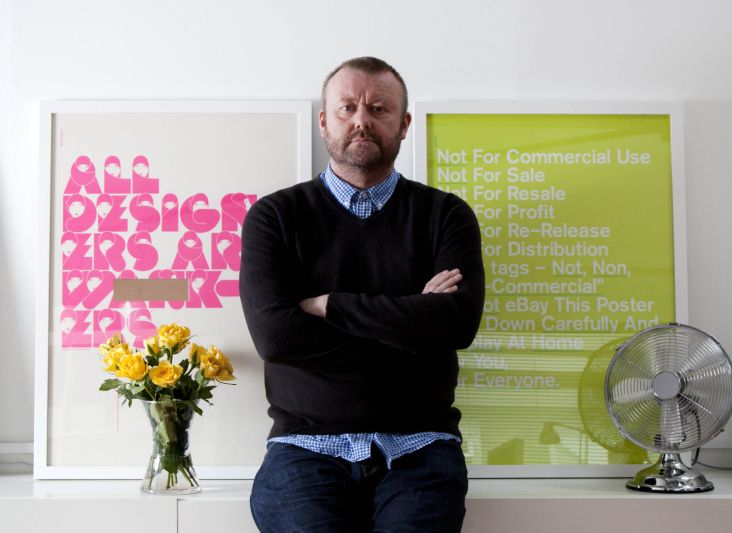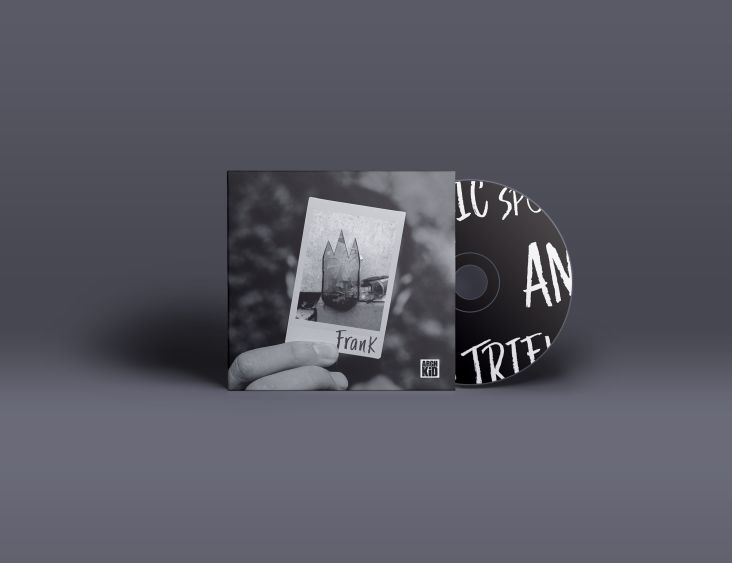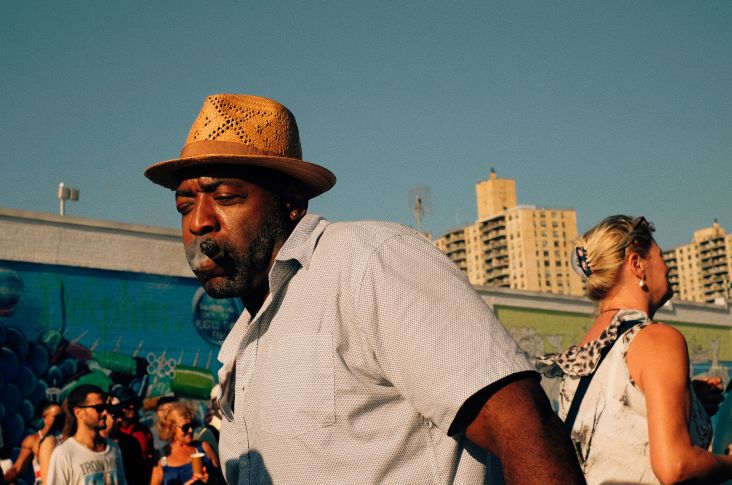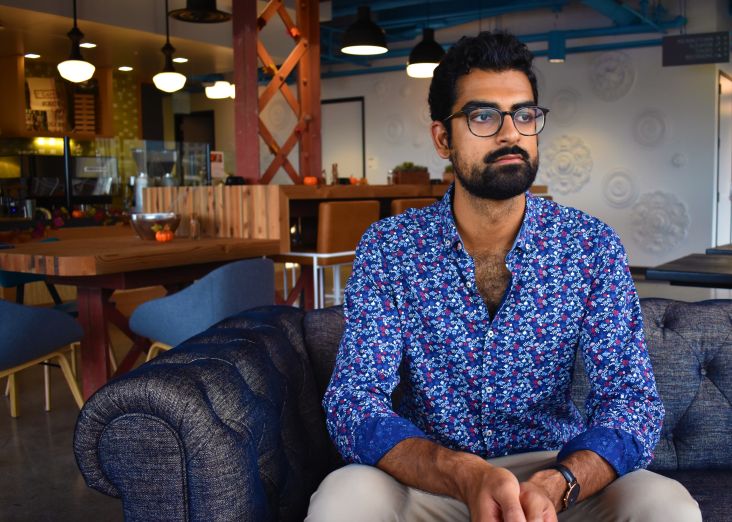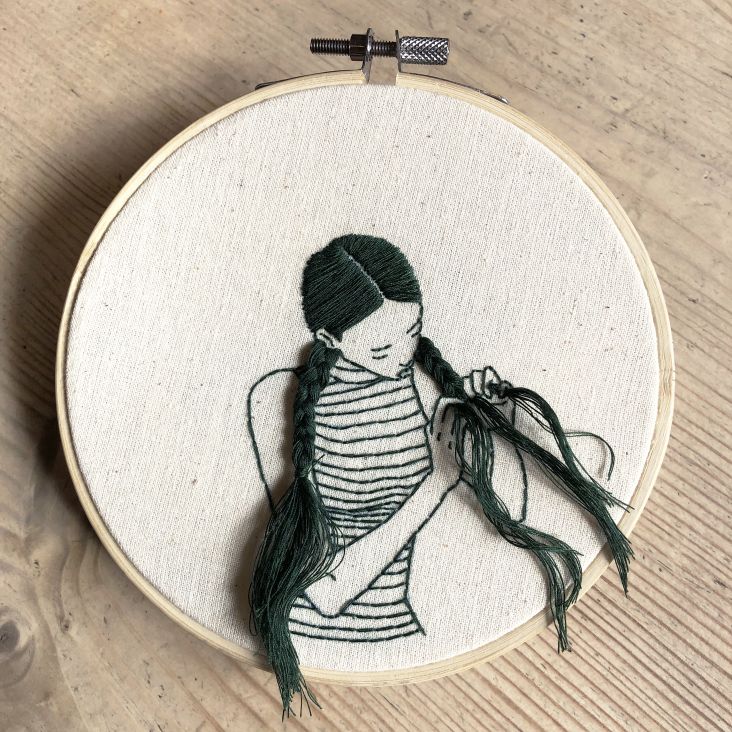Debbie Millman on the power of courage over confidence, embracing criticism and overcoming fear
Debbie Millman is named as "one of the most creative people in business" by Fast Company, and "one of the most influential designers working today" by Graphic Design USA.
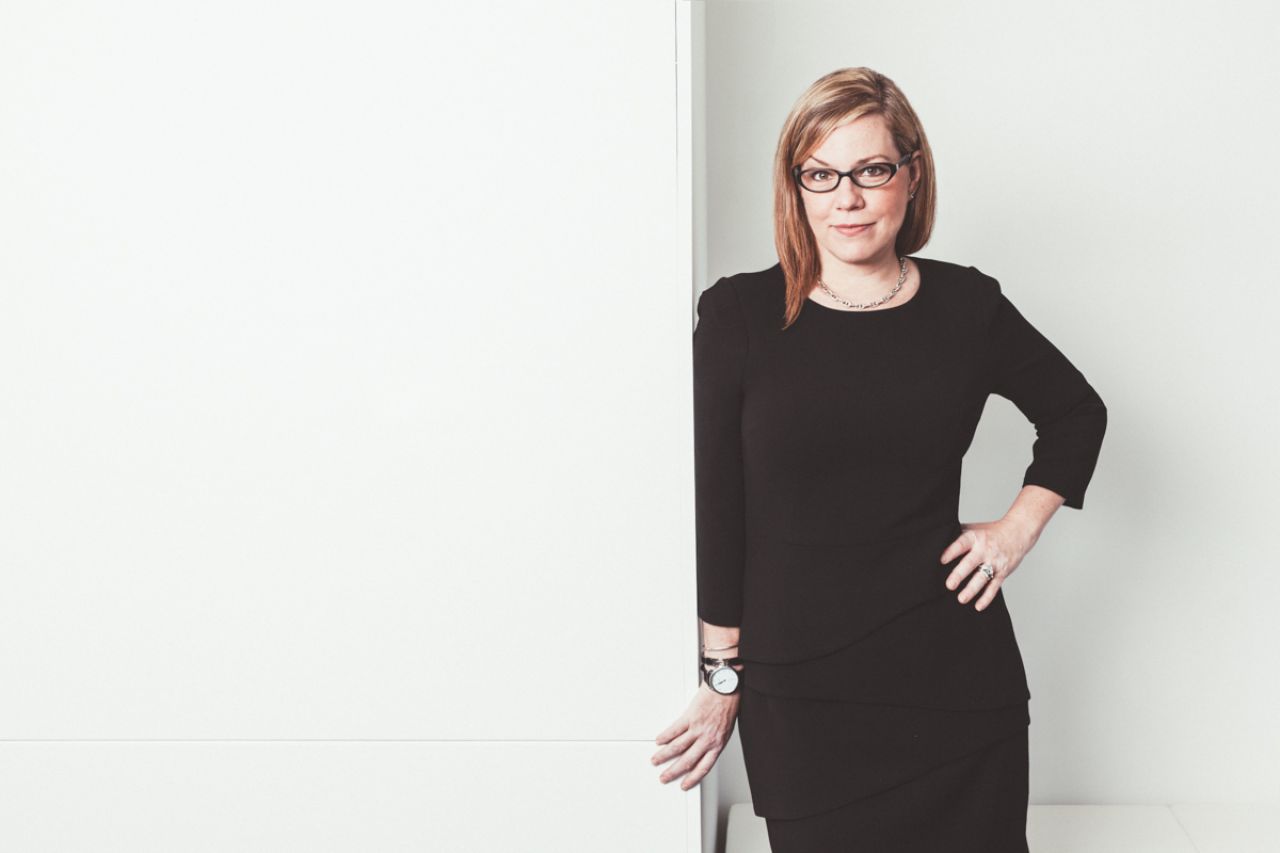
Credit: Catalina Kulczar-Marin
She's also an author, educator, curator and host of the much-loved podcast Design Matters where she has interviewed over 400 artists, designers and cultural commentators, including Marina Abramovic, Thomas Kail and Milton Glaser.
Debbie has written six books, including two collections of interviews that have extended the ethos and editorial vision of Design Matters to the printed page: How to Think Like a Great Graphic Designer and Brand Thinking and Other Noble Pursuits.
Her illustrations, meanwhile, have appeared in publications such as The New York Times, New York Magazine, Print Magazine, Design Observer and Fast Company. Her artwork is included in the Boston Biennale, Chicago Design Museum, Anderson University, School of Visual Arts, Long Island University, The Wolfsonion Museum and the Czong Institute for Contemporary Art. She has been critic-in-residence at Cranbrook University, Old Dominion University and Notre Dame University, and has conducted visual storytelling workshops all over the world.
In 2009, Debbie co-founded with Steven Heller the world’s first graduate programme in branding at the School of Visual Arts in New York City. Now in its eighth year, the course has achieved international acclaim.
For 20 years, Debbie was the President of Sterling Brands, one of the world’s leading branding consultancies. She arrived there in 1995 when the company was two years old and had 15 employees in one office. Under her leadership, Sterling grew to 150 employees in five offices and she was instrumental in the firm’s acquisition by Omnicom in 2008. Omnicom is one of the world’s largest holding companies.
Debbie is also President Emeritus of AIGA, one of five women to hold the position in the organisation’s 100-year history. With such an incredible career so far, we chatted to Debbie about some of the highlights, lessons learned and what she has in store next.
Did you always know that you wanted to be a designer?
Not at all! I started working in design primarily because it was the only marketable skill that I had. When I was in college at The State University at Albany, New York, I wrote for the student newspaper and I became the arts and features editor in my senior year.
As part of the role of editor you also had to layout and design the paper. I found that to be something truly remarkable, like magical. I loved doing it and I loved doing it as much, if not more than, the editing, writing and assigning stories.
There wasn't much I could do with an English degree; I didn't want to be an account executive in an ad agency. I had this skill of being able to do what is considered now old-school layout drafting skills. My first jobs were working as a freelance designer and paste-up artist. But the first 10 years of my career were experiments in rejection and failure. I didn’t get my job at Sterling Brands until 1995 – a full twelve years after I graduated college.
You have to work hard to discover what it is you are passionate about. You have to experiment and take risks. It takes work to get the work you love. There is no other way.
You've achieved so much. What has helped the most?
Realising that anything meaningful requires hard work. Everything! I recently met a very engaging young person and asked her what she wanted to be when she grew up. Her answer astounded me, both in its optimism and its confidence. When I asked what she wanted to be when she grew up, she answered, "everything".
I was the opposite. I went through a whole series of career aspirations but never felt that I was good enough, smart enough, pretty enough, or thin enough to do much of anything, let alone everything. In 1979, when I went off to college, I decided that majoring in English Literature would ultimately give me the most options to choose from, and I minored in Russian Literature because I loved Dostoyevsky and Tolstoy. I often joke now that I got my college degree in reading.
Despite my grand dreams of being an artist or a writer, the dominant influencer in my decision-making was imperative to be utterly self-sufficient. I never once felt that I had what it took to make a living making art. My only marketable skills were the tasks I learned working at my college newspaper: basic design, layout, and what we called "paste-up" of a publication (since we used an actual mechanical, not a computer, to compose the pages). My first job was in the design department of a cable magazine earning $6 per hour.
I lived in a fourth-floor tenement walk-up in Manhattan and because my paychecks were so low and my rent was so high, I had to make a monthly decision about what I would use my money for eating, rent, or paying off my student loan. When the first September came around after graduation and I sensed autumn in the air, I knew I had compromised. But I felt trapped. I could barely make enough money to pay my rent working as a commercial artist! How could I ever conceive of making a living as an actual artist? I assumed it would be harder and never considered I had any other choice.
About a year later, I was offered a position in a real estate development company in Westchester as the business’s Director of Marketing. It was a big title with a big increase in salary – now I would be making $25,000 a year – and it came with a car. I took it. Everyone congratulated me on my good fortune and the potential of this prestigious new opportunity. But on my first day at the job, I hated it so much that when I finally got home after the long commute, I climbed into bed, pulled the blankets over my head, and cried. I hated my new job for the entire time I was employed there. I loathed the work, real estate, and my mean boss.
And this was settling! This job and the job before it were jobs I had taken because I thought pursuing my dreams of being an artist or a writer were too hard. Who was I kidding?
Every job is hard. Design is hard, marketing is hard, and working at McDonald’s and Starbucks and Walmart is hard. Why does it feel "easier" to do something we don’t love than to do something we actually feel passionate about? I think we lose our courage to pursue our creative dreams when we feel that the only way we can make a living is to conform. I realise now that making a living doing what you love requires a personal belief that you have something meaningful to contribute.
What makes this particularly difficult is that making a living doing what you love doesn’t come with a real "rule book". There is no single process for anything. For example, you may have a process for being creative, but the actual act of living creatively is organic and (nearly) involuntary: You have to do it—you have no choice—or a part of you dies. So if you’re considering settling because going after what you want seems too hard to do, remember that hating what you do every day is even harder.
We all suffer from failure and rejection. What has been your worst professional experience to date?
In early 2003, a good friend sent me an email with a subject line that read: Begin drinking heavily before opening. The email contained a link leading to a blog titled Speak Up, the first-ever online forum about graphic design and branding in the world. Suddenly, sprawled before my eyes, I found myself reading an article that disparaged my entire career. This incident – in tandem with a number of historical rejections, failures and setbacks – sent me into a deep depression, and I seriously considered leaving the design profession altogether.
However, in the 15 years since this experience, this takedown of everything I'd done to date (and one that for a long time I thought was a complete and total failure) ended up turning into the foundation of everything I've done since. Everything I am doing now contains the seeds of origin from that time. Turns out, the worst professional experience I’ve faced became the most important, life-defining experience of my life.
During this year's London Design Festival, one key installation was Head Above Water by British designer, Steuart Padwick in support of mental health and the anti-stigma campaign, Time to Change. Do you feel we need to talk more about mental health?
Yes! I’ve been in therapy for nearly thirty years. When I first started, I was in my early 30s, and the bills practically killed me. But I knew I needed to deeply understand all the destructive things I was doing in order to try to live a remarkable life, and I wanted this more than anything.
Over the years I still sometimes smart at the monthly invoices, but I’ve never doubted that this investment has profoundly shaped who I have become. Although I still think I have work to do, it changed and then saved my life in every imaginable way.
Milton Glaser has been a huge influence on you. You teach a modified version of his 'Ten-Year Plan for a Remarkable Life' in your classes. How can we find purpose in our own lives? How is your own plan shaping up?
The essay I wrote in Milton Glaser’s class profoundly changed my life. Nearly all of it has come true. I think it was the notion of really truly declaring what you want in life, and formalising its importance to you in writing is what has made all the difference. That, and a little bit of magic.
The connections you've made along the way have benefited you enormously. Is success also about who you know?
It can help. But you can’t do much with a connection if you have nothing to say or offer or create!
Does confidence have a lot to do with success?
After an interview with the great writer Dani Shapiro on my podcast, Design Matters, she and I started to talk about the role of confidence in success.
During the conversation, Dani said that she felt confidence was highly overrated. I was instantly intrigued. Most overly confident people, she said, were really annoying. And the most confident people were usually arrogant. Over-exuding confidence was a sure sign that a person was compensating for some type of internal psychological deficit. Dani argued that courage was more important than confidence. When you are acting from a place of courage, you are saying that no matter how you feel about yourself or your opportunities or the outcome, you are going to take a risk and take a step toward what you want. You are willing to allow yourself to be vulnerable – in showing your art, starting a business that might succeed or fail, having an opinion on something, being in a relationship. You are not waiting for the confidence to mysteriously arrive.
I believe that confidence is achieved through repeated success. Repeated success provides a foundation that exudes confidence. Really smart people don’t have to prove that they are smart; they exude intelligence. It isn’t heavy-handed or showy. You can’t tell someone you are smart or intelligent and expect they will automatically believe you. Authentic confidence is more internal; it isn’t cocky or arrogant. If you have to "tell" people you are confident, chances are you are insecure about its authenticity.
Confidence is achieved through that willingness to continually put yourself in vulnerable situations. Success or failure has nothing to do with it.
I know people who launched a startup that tanked, had their art project excoriated by critics or went through a difficult breakup, yet they’re still confident; they see the experience as something that helped them along their path, and they remain willing to continue on it.
Perhaps confidence comes from a certain equanimity that arises from not putting too much stock in whether you’re celebrated or rejected. "Failure" is an arbitrary label, and the most psychologically healthy people I know tend to reframe it as an experiment that gave them valuable insight. So celebrate your flubs, your rejections, your vulnerability – they mean that you’re taking the risks necessary to grow.
The act of being courageous – taking that first step – is much more critical to a successful outcome than the notion of feeling confident while engaged in the process.
Courage requires faith in your ability before you experience any repeated success. But that doesn’t mean taking that first step will be easy. It won’t. Taking any step for the first time is difficult and there is a tremendous amount of vulnerability and nervousness you are likely going to experience.
But experiencing that vulnerability and nervousness doesn’t give you an excuse not to take the step. There is a wonderful scene in the third instalment of Indiana Jones wherein Indy knows he has to step on a path he actually can’t see; it is not visible to the naked eye. But in his heart, he knows it’s there, and he knows that he must take the first step to fulfil his destiny. Without seeing the pathway, he puts one foot in front of the other and steps into the unknown. And just like that, a visible pathway appears in front of him and he is able to cross it.
Courage is the foundation for authentic confidence. Taking the first step creates courage which will grow with every repetitive step you take.
If you had a slogan, what would it be?
It would be this: Busy is a decision. Of the many, many excuses people use to rationalise why they can’t do something, the excuse "I am too busy" is not only the most inauthentic, it is also the laziest.
I don’t believe in "too busy". I think that busy is a decision. We do the things we want to do, period. If we say we are too busy, it is shorthand for "not important enough". It means you would rather be doing something else that you consider more important.
That "thing" could be sleep, it could be sex, or it could be watching Game of Thrones. If we use busy as an excuse for not doing something, what we are really saying is that it’s not a priority. Simply put: you don’t find the time to do something; you make the time to do things.
We are now living in a society that sees busy as a badge. It has become a cultural cache to use the excuse "I am too busy", as a reason for not doing anything we don’t feel like doing.
The problem is this: if you let yourself off the hook for not doing something for any reason, you won’t ever do it. If you want to do something, you can’t let "being busy" stand in the way, even if you are busy. Make the time to do the things you want to do and then do them.
Aside from day jobs, you've also found time to run passion projects, like Design Matters. It's a phenomenal success. What's changed over its course?
I started Design Matters in 2005. I often say that the show began with an idea and a telephone line. After an offer from the Voice America Business Network to create an online radio show in exchange for a fee – yes, I had to pay them – I decided that interviewing designers who I revered would be an inventive way to ask my heroes everything I wanted to know about them. I started broadcasting Design Matters live from a telephone modem in my office in the Empire State Building at Sterling Brands.
After the first dozen episodes, I began to distribute the episodes free on iTunes. I realised the opportunity to share the brilliance of my guests with an audience I never expected was the gift of a lifetime, not only because I had a built-in permission slip to ask some of the greatest designers in the world questions about how they became who they are, but also because I could freely offer this to others as well. Design Matters inadvertently became the first ever design podcast and is now one of the oldest podcasts on the Internet.
As both podcasting and Design Matters grew in popularity, in 2009 I recognised that I needed to upgrade the sound quality of the show. After 100 episodes on Voice America, I was invited to publish Design Matters on Design Observer by co-founder William Drenttel. I hired producer Curtis Fox and began recording the show at the specially built podcast studio in my Masters in Branding Program here at the School of Visual Arts.
The show has transitioned from a show about design to a show about how incredibly creative people design their lives. I’m still endlessly fascinated by the arc of a life, and I’ve interviewed nearly 400 designers, artists, writers, business leaders, musicians, poets, playwrights and more.
Some of my favourite episodes include interviews with Chris Ware, Chip Kidd, the 13 interviews I’ve conducted with Steven Heller (we have an annual show, it’s become our ritual), Simon Sinek, Amanda Palmer, Elizabeth Alexander, and so many more.
In 2011, the show won a Cooper Hewitt National Design Award and after 11 years, iTunes designated it one of the top fifteen podcasts of 2015 and the Webby Awards recognised the show this year. We now have about five million downloads a year, which blows my mind.
Ironically, I started Design Matters when I felt like I was in a bit of a creative slump. This was before I had started teaching at SVA, and at the time, all of my work had veered to the commercial. I felt my creative spirit was dying. I thought the opportunity to create a little Internet radio show with Voice America, if nothing more, could be a fun, creative experience. It’s ended up profoundly changing my life.
What do you think ultimately holds other people back from achieving their dreams?
Fear. You need to know how to talk about your work and you need to know how to talk about yourself and what you do, even if you are afraid, even if you are nervous.
Many years ago, in The New Yorker, I read an article about Barbra Streisand. The reporter asked her manager what her greatest talent was. He replied that her greatest talent wasn’t singing, directing, acting, or even her longevity in the business. Her greatest talent was doing all of those things while experiencing debilitating stage fright. Despite the fact that she was terrified of performing, she did it anyway. She did it "as if" she wasn’t afraid.
Being afraid of expressing what you want or who you are is not an excuse to not do it. You just can’t use being nervous or scared as an excuse not to do it. You must do it anyway. You must do it "as if" you are not afraid. You can’t wait to be less scared or nervous.
The only way to alleviate that fear is actually doing the thing you are scared and nervous about over and over until you get better at it. Very few people ever do something the first time and do it perfectly right out of the gate. Being nervous and scared is normal. But the fears will lessen over time as you get more and more comfortable actually doing the thing you are scared of doing.
Tell us something about yourself that might surprise us
I can write forwards and backwards with both hands.
What is the current running theme that keeps going around in your head? What itch are you hoping to scratch?
What I love most about being creative is the ability to make something from nothing. I am happiest when I'm making things. I could be making a podcast, I could be making a lesson plan, I could be making a book, a piece of art. Whatever it is, if I'm making it, I'm happy. My itch is almost always about making something, creating something and doing something meaningful.

















